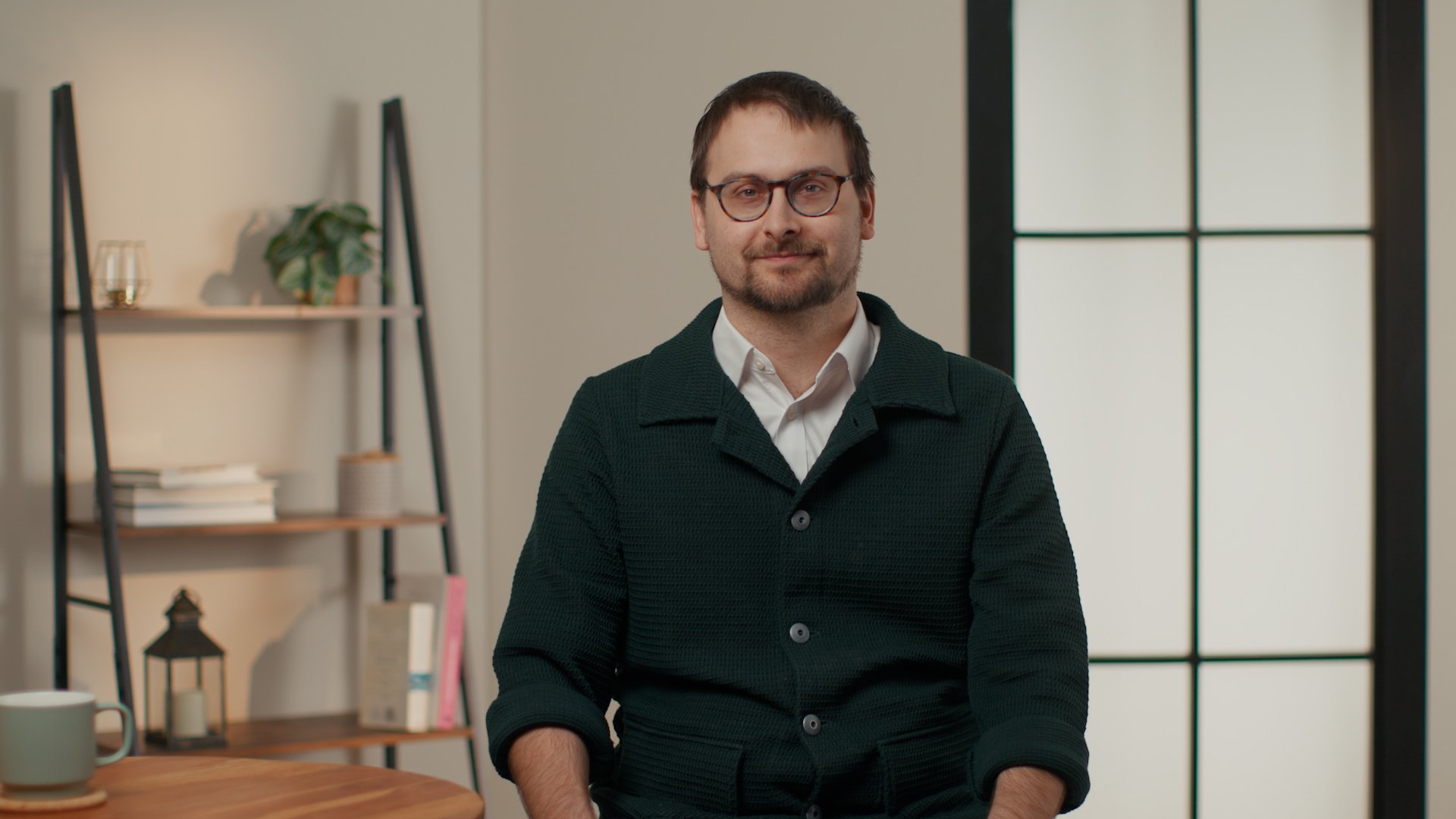As with any investment, your capital is at risk. Past performance is not a guide to future returns.
I’m Stephen Paice, co-manager of the Baillie Gifford European Growth Trust. As long-term investors, dealing with periods of underperformance is one of the toughest parts of the job. But for those who remain patient, it can be one of the most rewarding parts. Remember, "The big money is not in the buying and selling but in the waiting."
Yes, we’ve had a few years where performance hasn’t been where it should be, but we’ve been through cycles like this before. The positive is that we’ve learned from each experience and emerged in a much better place every time.
Recent performance
Over our last financial year to the end of September 2024, we delivered just over 9 per cent in share price terms, which lagged the 15 per cent you would have got from the index. Looking forward though, we believe there’s a much more positive story emerging.
Our publicly listed companies, now around 94 per cent of assets, generated a return of around 20 per cent, comfortably outperforming the index. These include companies like Spotify, which now has over 600m users, Adyen, a Dutch payments platform, and Schibsted, a collection of Nordic online classifieds businesses.
These, and many of our other companies, have spent years investing in growth, and are now in the position to reap the rewards. Three of our five private companies are also progressing very well. Especially Bending Spoons, a fast-growing and profitable Italian software company, which is our largest private investment.
Most of the underperformance last year is therefore explained by the write-down in the valuations of the other two private companies, Northvolt and McMakler, and the widening of the discount to the trust’s net asset value (or NAV).
Northvolt has been particularly frustrating. Despite its strategic importance for the European battery industry, a slow ramp-up in production and then a lack of funding has unfortunately led to a Chapter 11 reorganisation (a form of bankruptcy protection).
McMakler, a German real estate broker, has also faced some funding issues although its balance sheet now looks much better. As it stands though, we’ve decided to write off both original investments. There is still the possibility of a positive outcome, however it’s a much lower probability than we would like.
Reasons to be optimistic?
I think there are lots of reasons to be optimistic.
Our differentiated strategy of looking for European growth companies—both public and private—that can at least double in value over five years isn’t broken; interest rates are lower, inflation is being managed, corporate activity is picking up, and inventory levels across many industries are now much healthier. This environment is much more supportive of our style of investing and for the companies we invest in.
We’ve improved the quality of the portfolio by adding in companies like Instalco, Dino Polska, and Novo Nordisk and weeding out some lower-conviction names like Kering, Evotec and Delivery Hero. We have exposure to growth trends that should last for decades: for example, companies which grow via acquisition (or serial acquirers), healthcare innovation, digitalisation, and increasing wealth, particularly in emerging markets.
Most important of all though, is that fundamentals are also very strong: our companies are growing sales and earnings faster than the index, they’re profitable and make higher returns on invested capital and have less debt. The price we pay for this growth through valuation multiples has also come down significantly.
Looking forward
As they should however, our Board, who remain very supportive, is holding us accountable by introducing a performance-related tender offer. This means that if the growth in our net asset per share doesn’t outperform the index over the four-year period to September 2028, shareholders will be given the option to sell all their shares at a price close to the trust’s NAV.
Looking at the fundamentals of the companies we invest in and current valuations, we really don’t think this will be triggered. But if it is, then at least shareholders will benefit from the uplift in value from the closing of the discount, which is currently around 15 per cent.
So, we have a performance hurdle to clear, a challenge which we gladly accept. Our patience will continue, as will our focus on what we believe to be the best underappreciated growth companies in Europe. By doing that, we’re confident we’ll get back to delivering the kind of returns our clients have enjoyed in the past.
Annual past performance of The Baillie Gifford European Growth Trust to 31 December each year
| 2020 | 2021 | 2022 | 2023 | 2024 | |
|
Share Price |
64.8 |
4.2 |
-41.3 |
10.4 |
-7.5 |
|
Net Asset Value |
45.4 |
13.4 |
-35.2 |
10.0 |
-5.3 |
|
FTSE Europe ex UK Index |
7.8 |
17.6 |
-9.4 |
15.7 |
3.1 |
Source: Morningstar, FTSE. Total return in sterling.
Past performance is not a guide to future returns.
Legal notice: London Stock Exchange Group plc and its group undertakings (collectively, the "LSE Group"). © LSE Group 2023. FTSE Russell is a trading name of certain of the LSE Group companies. "FTSE®" "Russell®", is/are a trade mark(s) of the relevant LSE Group companies and is/are used by any other LSE Group company under license. All rights in the FTSE Russell indexes or data vest in the relevant LSE Group company which owns the index or the data. Neither LSE Group nor its licensors accept any liability for any errors or omissions in the indexes or data and no party may rely on any indexes or data contained in this communication. No further distribution of data from the LSE Group is permitted without the relevant LSE Group company's express written consent. The LSE Group does not promote, sponsor or endorse the content of this communication.
Important information and risk factors
This film was produced and approved in January 2025 and has not been updated subsequently. It represents views held at the time and may not reflect current thinking.
This communication does not constitute, and is not subject to the protections afforded to, independent research. Baillie Gifford and its staff may have dealt in the investments concerned. The views expressed are not statements of fact and should not be considered as advice or a recommendation to buy, sell or hold a particular investment.
The investment trusts managed by Baillie Gifford & Co Limited are listed UK companies and are not authorised or regulated by the Financial Conduct Authority. The value of their shares, and any income from them, can fall as well as rise and investors may not get back the amount invested.
Baillie Gifford & Co and Baillie Gifford & Co Limited is authorised and regulated by the Financial Conduct Authority (FCA).
All information is sourced from Baillie Gifford & Co and is current unless otherwise stated.
The specific risks associated with the European Growth Trust include:
- The Trust invests in overseas securities. Changes in the rates of exchange may also cause the value of your investment (and any income it may pay) to go down or up.
- Unlisted investments such as private companies can increase risk. These assets may be more difficult to sell, so changes in their prices may be greater.
- The Trust can borrow money to make further investments (sometimes known as "gearing" or "leverage"). The risk is that when this money is repaid by the Trust, the value of the investments may not be enough to cover the borrowing and interest costs, and the Trust will make a loss. If the Trust's investments fall in value, any invested borrowings will increase the amount of this loss.
- Market values for securities which have become difficult to trade may not be readily available and there can be no assurance that any value assigned to such securities will accurately reflect the price the Trust might receive upon their sale.
- The Trust's risk is increased as it holds fewer investments than a typical investment trust and the effect of this, together with its long term approach to investment, could result in large movements in the share price.
- The Trust can make use of derivatives which may impact on its performance.
- Share prices may either be below (at a discount) or above (at a premium) the net asset value (NAV). The Company may issue new shares when the price is at a premium which may reduce the share price. Shares bought at a premium may have a greater risk of loss than those bought at a discount.
- The Trust can buy back its own shares. The risks from borrowing, referred to above, are increased when a trust buys back its own shares.
- The aim of the Trust is to achieve capital growth. You should not expect a significant, or steady, annual income from the Trust.
Further details of the risks associated with investing in the Trust, including a Key Information Document and how charges are applied, can be found in the Trust specific pages at www.bailliegifford.com, or by calling Baillie Gifford on 0800 917 2112.
Receive regular emails, including manager updates, insights articles, podcasts and event invites.
SubscribeAbout the speaker

Stephen Paice is a co-manager of Baillie Gifford European Growth Trust. He joined the firm in 2005, and has spent time in the US, UK and Japanese equities teams.
Related insights

Asia's multi-faceted growth story
China's innovation and Vietnam's reforms create a compelling investment case in Asia.June 2025
Video|40 minutes
Profile of a sustainability researcher
Explore how Ben Hart's sustainability research at Baillie Gifford integrates ESG into investment strategies.May 2025
Video|6 minutes
Schiehallion Fund: Manager Insights
Reflections on performance, portfolio companies and opportunities for returns in the year ahead.May 2025
Video|7 minutes

